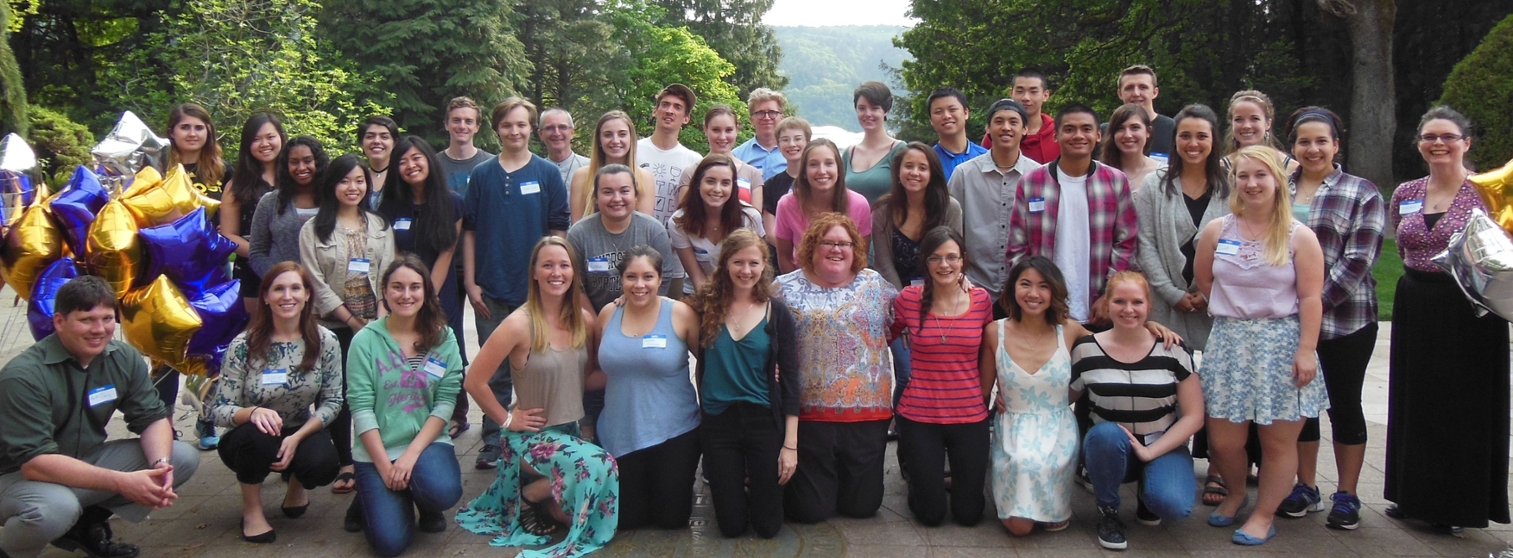First Generation Families
Welcome!
Congratulations and a special welcome to your family to the University of Portland community! Congratulations to you on all of the guidance, encouragement, and support that you have provided your student as he or she has pursued a college education. We are thrilled to welcome your son or daughter to our FGEN community!
We understand how important family support was in getting your child here, and how important it will be in his or her college success. Our FGEN community encourages you to continue to be active participants in your children's lives as they attend college. Look over our Resources for FGEN Families page to help foster understanding and conversation about going to college for the first time.
On
Parents website you will find information about services provided to your student, academic and financial resources, policies, events, publications and frequently asked questions. Read about the
University’s history and mission.
We offer a program session directed to parents and other family members at the University of Portland New Student Orientation to help you learn more about the college experience, how to support your child, and about UP in general. In addition, we offer a one-day pre-orientation program for all incoming freshmen that seeks to offer additional guidance and support to incoming FGEN students.
Tips for Parents/Family Members of First-Generation Students
- Join us for Orientation before the academic year begins. This is a wonderful opportunity to learn what the University of Portland has to offer your student. Parent and family support will be essential to the academic success of your college student. For more information visit please look over our Orientation page.
- Learn about the college process and what to expect – by learning about campus resources you will be able to become more familiar with what your student is experiencing. Please visit the “Student Resources” tab for more information about campus resources.
- Remember that pursuing higher education does not mean that students will lose the values they were raised with. Colleges, and especially UP, aim to help students continue their development as a whole and intends to send ethical and intelligent students out into our society.
- In order for your student to adequately adapt to college life we suggest that students stay on campus and not visit home for the first few weeks of college. This will help your student get to know their peers and get involved with activities and opportunities UP offers to its students. Also, we hope you understand that it is likely your student will not be able to come home every weekend, even after their first initial weeks at UP. Similarly, if your student is living at home, they may not have the same amount of time to devote to family responsibilities as they did prior to their college career. Now that your student is in college they will need to revamp their study schedule. In high school they were in class for about 30 hours a week while studying 10 to 15 hours outside of class. Now they are in class 15 to 18 hours a week. In order to be on top of their academics, they should be studying, meeting with professors, and working with classmates an additional 20 to 25 hours minimum outside of class.
- Be patient with yourselves and one another, especially since this is a learning experience for everyone (both you and your student) – you will all be learning about this transition process together!
Finally, know that we value your partnership in this process, and want to make your child's experience here at UP rewarding and special. If you have questions or concerns, email firstgen@up.edu or call 503.943.7895.
Family Program Session at New Student Orientation
Incoming first generation students and their families are asked to attend the New Student Orientation session specific for FGEN students and families. During this session we will provide insight into the FGEN community here on The Bluff through the eyes of current FGEN students. In addition, we hope to offer some strategies and resources that might be helpful going forward for all.

